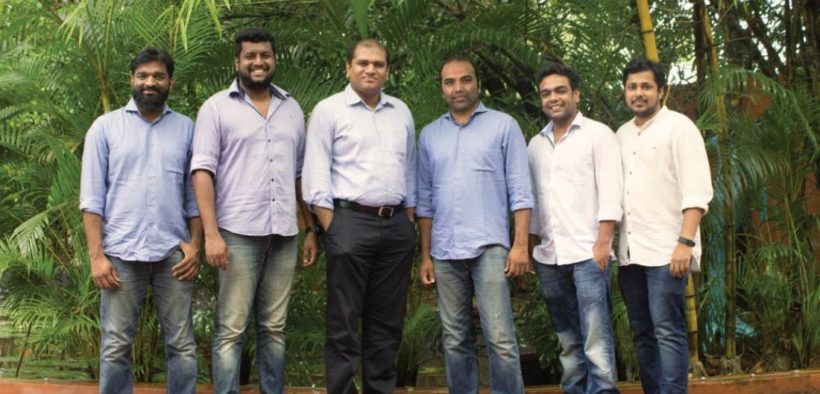Bringing The World To India

Bengaluru-based startup TreatGo is exploring the realm of medical tourism in India and threading it with countries worldwide.
By Lidiya Prasad
India is almost at the doorstep of its 2020 Millenium dream, one that Kalam envisioned. As much as the country is known for its mystical aura and eclectic culture, it has much more to boast of in this era when newer possibilities and innovations are making its presence known on the global map. With advancements in technology, one of the sectors that have seen a bigger boom in the last decade is medical tourism, one that has transformed the country into a widely preferred healthcare hotspot.

Joining the legion is Bengaluru-based startup TreatGo, which is giving the country’s healthcare sector a revamp by providing answers to the common problems facing patients globally. Headquartered in the UK, TreatGo, founded in 2016, is the brainchild of five techies and a doctor who are “more friends than colleagues”. Having known each other for over 10 years, the team first came together in 2010 as Dexetra, a software company that created an AI platform. The Sequoia and Qualcomm backed company went on to be acquired by US-based Quixey in 2014, after which they started brainstorming ideas for a new venture that would address relevant issues in healthcare.
Yaser Hameed, CEO, and co-founder of TreatGo gets chatty about its beginnings. “The new-born of one of our best friends was diagnosed with a severe heart condition in 2016 and I remember how flustered he was about the treatment and choice of hospital,” he says. “It struck us then that millions of patients around the world were devoid of proper healthcare options. If Dexetra was conceived to provide digital convenience to masses, TreatGo was founded on the solid vision of providing hassle-free healthcare services.”
Foraying into new and unexplored territories always comes at a cost. Says Nithin John, CTO at TreatGo, “Starting off, there was extensive market research that went into learning patient and hospital patterns. When we approached hospitals, introducing a new referral platform, there was obvious inertia at first since there were existing models of operation to attract foreign patients. But slowly we gained their trust, and today we collaborate with over 100 hospitals across India.”
“WHEN WE APPROACHED HOSPITALS, INTRODUCING A NEW REFERRAL PLATFORM, THERE WAS AN OBVIOUS INERTIA AT FIRST SINCE THERE WERE EXISTING MODELS OF OPERATION TO ATTRACT FOREIGN PATIENTS. BUT SLOWLY WE GAINED THEIR TRUST, AND TODAY WE COLLABORATE WITH OVER 100 HOSPITALS ACROSS INDIA.”
Nithin John, CTO, TreatGo
TreatGo’s success lies in its responsive platform and a keen interest in providing the best services to their patients. Although the industry has been highly prejudiced in the past, with individual agents being the middlemen and an archaic approach towards patient service, TreatGo has been able to shatter those barriers and spread its roots across countries. “What kept us going despite all the testing times was the trust we shared as a team and the acknowledgment of the impact we were creating as a healthcare force,” adds Hameed.
Although medical tourism as a concept is not a novelty, TreatGo has given it a new dimension. “As tech guys, we wanted to explore how differently we could serve our patients and connect them to hospitals across geographic boundaries, through our platform,” Hameed shares. In a time of limitless technology and virtual wonders, one would think that our healthcare services have technologically advanced beyond excellence. But this couldn’t be farther from reality.
Online healthcare services have almost never taken patients beyond a hospital’s reception desk or a test report collection desk. There has been no imagination or thought nurtured beyond that point in healthcare, which is mostly limited to outpatient appointments or accessing patient’s medical reports via email. This is often due to poor cooperation from hospitals or lack of need for such innovation. But the real answer to the problem lies beyond the periphery of convenience services. And that is where Treatgo comes to the threshold.
Dr Rahul Abbas, medical head at the startup, comments on how, as a company, it has been able to make a difference in this thriving sector, ”Unlike traditional methods where patients do not have direct access to hospitals or doctors, at TreatGo, we have adopted a guided approach to help patients, starting from booking their appointment to the final treatment in India,” he says. “As for hospitals, by providing better services to their patients they are incentivized, and this encourages them to a great extent.” Patients who are advised costly, invasive surgeries often prefer seeking out opinions from multiple doctors before going ahead with the procedure.
However, following the traditional methods, this would require them to be physically present at each hospital, exhausting their time, money and effort. But with Treat- Go’s assistance, patients can now gain access to doctors and hospitals of their choice from within the comfort of their homes. Donning the hat of hospital staff, it bridges the gap between doctors and patients. “Freedom of choice,” Hameed says, “is what we offer our patients.” Holding on to its core values of urgency, transparency, and simplicity, TreatGo is forging ahead towards a future they envisaged: ‘healthcare sans boundaries’
















